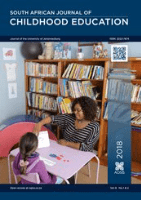
South African Journal of Childhood Education
Scope & Guideline
Exploring the intersection of developmental psychology and education.
Introduction
Aims and Scopes
- Early Childhood Development and Education:
The journal places a strong emphasis on early childhood education and development, exploring various pedagogical approaches, curriculum frameworks, and the role of educators in fostering children's growth. - Inclusive Education Practices:
A core area of focus is on inclusive education, particularly how to address the diverse needs of learners in South African classrooms, including those with disabilities and learning difficulties. - Teacher Training and Professional Development:
The journal emphasizes the importance of preparing pre-service teachers through effective training programs, highlighting the need for continuous professional development for current educators. - Impact of Socio-Cultural Factors:
Research often explores the influence of socio-cultural contexts on education, including the effects of poverty, trauma, and community involvement on children's learning outcomes. - Use of Technology in Education:
The incorporation of digital tools and innovative teaching methods is a recurrent theme, examining how technology can enhance learning experiences for young children. - Language and Literacy Development:
A significant focus is on literacy and language acquisition in early childhood, with research investigating effective strategies for teaching reading and writing skills.
Trending and Emerging
- Trauma-Informed Education:
An increasing number of studies are focusing on the impact of trauma on learning, especially in the context of the COVID-19 pandemic, emphasizing the need for educators to adopt trauma-informed practices. - Multilingualism and Translanguaging:
Research on multilingual classrooms and the use of translanguaging as a pedagogical strategy is gaining momentum, reflecting South Africa's diverse linguistic landscape. - Decolonization of Education:
There is a growing interest in decolonizing curricula and educational practices, with researchers advocating for the inclusion of indigenous knowledge and perspectives in early childhood education. - Digital Pedagogy and Remote Learning:
The shift towards online learning and the integration of digital tools in teaching practices has become a prominent topic, particularly following the disruptions caused by the pandemic. - Community and Parental Involvement:
Emerging themes emphasize the importance of community engagement and parental involvement in education, recognizing their crucial role in supporting children's learning and development. - Social-Emotional Learning:
There is an increasing focus on social-emotional learning (SEL) and its significance in early childhood education, addressing children's emotional well-being and interpersonal skills.
Declining or Waning
- Traditional Pedagogical Approaches:
There seems to be a waning interest in traditional teaching methods that do not incorporate contemporary educational theories or practices, as more innovative and child-centered approaches gain traction. - Standardized Testing and Assessment:
Research focusing on standardized testing methods and assessments appears to be decreasing, possibly due to a growing recognition of the limitations of these approaches in measuring true educational outcomes. - Behaviorist Learning Theories:
The journal has seen a decline in articles centered on behaviorist theories of learning, with a shift towards more constructivist and holistic approaches that consider the whole child. - Isolation of Subjects in Education:
There is a reduced focus on studying subjects in isolation, such as mathematics or literacy, as there is a move towards integrated curricula that combine multiple disciplines.
Similar Journals

Educacao & Formacao
Exploring New Horizons in Teacher DevelopmentEducacao & Formacao is a pioneering academic journal published by the State University of Ceará within the Centro de Educação, focusing on the fields of education and teacher training. With an E-ISSN of 2448-3583, this journal has embraced the open access model since 2016, ensuring that high-quality research is freely accessible to educators, researchers, and practitioners globally. The journal serves as a vital platform for disseminating innovative research, critical analyses, and best practices in education, particularly within the Brazilian context and beyond. With its commitment to contributing to the discourse on education, Educacao & Formacao encourages submissions that advance knowledge and foster improvements in educational practices. The journal’s focus on accessibility and engagement makes it an invaluable resource for professionals and students eager to stay abreast of current trends and developments in education.
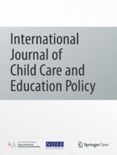
International Journal of Child Care and Education Policy
Elevating standards in child health and education through collaboration.International Journal of Child Care and Education Policy, published by Springer, stands as a leading platform in the multidisciplinary fields of education, child health, and social sciences. With an ISSN of 1976-5681 and E-ISSN of 2288-6729, this open-access journal has been committed to advancing knowledge and promoting policy insights since 2014. Featuring a diverse range of articles, the journal has achieved a commendable Q2 classification across various categories, including Community and Home Care, Education, and Pediatrics according to the 2023 metrics. Ranked within the top tiers of Scopus categories, it attracts a wide readership, offering valuable contributions aimed at improving practices and policies related to child care and education worldwide. Researchers, practitioners, and students interested in these crucial subjects will find a wealth of high-quality, peer-reviewed content, enhancing their understanding and impact in the field.
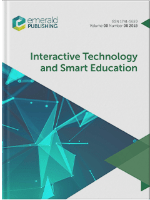
Interactive Technology and Smart Education
Pioneering advancements at the crossroads of technology and learning.Interactive Technology and Smart Education is a leading academic journal published by EMERALD GROUP PUBLISHING LTD, dedicated to exploring the dynamic intersection of technology and education. With a robust impact factor signifying its significant contributions to the field, this journal consistently ranks in the Q1 quartile in categories such as Computer Science (Miscellaneous), Education, and E-learning, reflecting its prestige and wide-ranging influence. A staple for researchers, educators, and industry professionals, the journal addresses innovative practices and developments in interactive technologies that enhance teaching and learning experiences. Operating from its base in the United Kingdom, the journal spans nearly two decades of impactful publishing, featuring high-quality research that plays a crucial role in shaping the future of education through technology. Scholars seeking to stay at the forefront of this evolving field are encouraged to contribute and engage with the journal's pioneering work.

Australasian Journal of Early Childhood
Exploring New Horizons in Early Childhood Education.The Australasian Journal of Early Childhood, published by SAGE Publications Ltd, serves as a vital resource for researchers, practitioners, and educators dedicated to the field of early childhood education. With an ISSN of 1836-9391 and E-ISSN of 1839-5961, this journal provides peer-reviewed articles and studies aimed at improving educational practices and policies within the developmental and educational psychology sectors. As of 2023, it holds a respectable Q3 quartile ranking in Developmental and Educational Psychology and Q2 in Education, highlighting its critical engagement with current issues and research. Ranked within the top 67th percentile in Social Sciences - Education and the 50th percentile in Developmental Psychology according to Scopus metrics, the journal is recognized for its contribution to advancing knowledge and practice in early childhood settings. Located in Australia and operating under rigorous standards, the journal is particularly important for fostering a deeper understanding of early childhood development, promoting evidence-based practices, and advocating for policy improvements that benefit educators and learners alike.

ZDM-Mathematics Education
Transforming Teaching Practices in MathematicsZDM - Mathematics Education, published by Springer Heidelberg, is a premier academic journal dedicated to the advancement of research and practice in mathematics education. With an impressive impact factor and recognized as a leader in its field, this journal provides a vital platform for disseminating innovative pedagogical strategies, empirical studies, and theoretical discussions surrounding mathematics teaching and learning. The journal operates as a valuable resource for the educational community, holding a distinguished Q1 ranking in both Education and Mathematics categories as of 2023, showcasing its prominence among international academic publications. Covering a broad spectrum of topics, ZDM-Mathematics Education aims to foster collaboration, inspire educational reform, and support the professional development of educators worldwide. With the convergence of years extending from 1997 to 2024, it continues to shape discourse in the domain of mathematics education, appealing to researchers, educators, and policymakers alike.
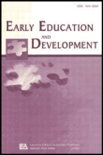
Early Education and Development
Inspiring Change in Early Childhood PracticesEarly Education and Development is a prestigious journal published by Routledge Journals, Taylor & Francis Ltd, dedicated to advancing the field of early childhood education and developmental psychology. With an ISSN of 1040-9289 and an E-ISSN of 1556-6935, this journal has garnered an impressive reputation, achieving a Q1 ranking in both Developmental and Educational Psychology as well as Education as of 2023. Its influence is reflected in its Scopus rankings, standing at #236 out of 1,543 in Social Sciences (Education) and #83 out of 360 in Psychology (Developmental and Educational Psychology), positioning it in the 84th and 77th percentiles, respectively. Operative since 1989, Early Education and Development serves as a vital resource for researchers, educators, and policymakers by publishing cutting-edge research, theoretical frameworks, and practical applications that shape early educational practices globally. Though it does not currently offer open access options, its contributions remain essential for those looking to stay abreast of the latest developments and best practices in early education.
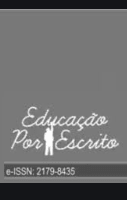
Educacao por Escrito
Cultivating Innovative Approaches to Teaching and WritingEducacao por Escrito is a distinguished academic journal published by EDIPUCRS-EDITORA UNIV PUCRS, focusing on the intersection of education and writing practices. With its open access model established in 2010, the journal aims to democratize access to research and foster global dialogue on educational methodologies, literary analysis, and pedagogical innovations. Although specific metrics such as HIndex and Scopus rankings are pending, the journal is committed to quality scholarship that contributes to the fields of education and linguistics, making it an essential resource for researchers, educators, and students alike. Located in Porto Alegre, Brazil, Educacao por Escrito serves as a platform for diverse voices, aiming to advance understanding and practice in the expansive landscape of educational writing.
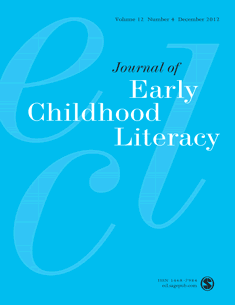
Journal of Early Childhood Literacy
Advancing Knowledge for Future GenerationsJournal of Early Childhood Literacy, published by SAGE PUBLICATIONS LTD, is a leading international journal dedicated to the exploration and dissemination of research in the field of early childhood literacy. With a robust impact factor and a distinguished ranking in the Q1 category of Education, this journal is at the forefront of publishing innovative studies and theoretical frameworks that shape literacy practices and policies for young learners. Operating from its base in the United Kingdom, it serves as a crucial platform for researchers, educators, and practitioners alike, providing insights into literacy development, pedagogical strategies, and the socio-cultural contexts affecting literacy acquisition. Researchers can access a wealth of articles that reflect the journal’s commitment to advancing knowledge and understanding in early childhood literacy, making it an essential resource for anyone dedicated to fostering literacy in the formative years. The journal has consistently maintained a strong reputation, ranking in the top 82nd percentile among its peers in Social Sciences - Education according to Scopus metrics. Engage with the vibrant discourse and contribute to the evolving landscape of early literacy by exploring the latest findings published in the Journal of Early Childhood Literacy.
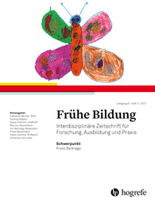
Fruhe Bildung
Exploring Foundations: Research-Driven Strategies for Early DevelopmentFruhe Bildung, published by HOGREFE VERLAG, is a prominent interdisciplinary journal dedicated to exploring the field of early childhood education and development. With an ISSN of 2191-9186 and an E-ISSN of 2191-9194, this journal aims to disseminate high-quality research and innovative practices that inform pedagogical approaches and policies in early education settings. Although it operates under a traditional access model, the journal remains committed to advancing knowledge through rigorous peer-reviewed articles, theoretical discussions, and empirical studies. The importance of early childhood education as a foundational stage for lifelong learning and development makes this journal essential for researchers, educators, and practitioners keen on enhancing educational outcomes for young children. Based in Göttingen, Germany, it provides a vital platform for scholarly exchange and is poised to contribute significantly to the discourse surrounding best practices in early childhood education.
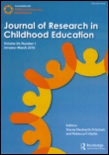
Journal of Research in Childhood Education
Empowering educators through impactful research.The Journal of Research in Childhood Education, published by Routledge Journals, Taylor & Francis Ltd, is a prestigious academic journal that has been at the forefront of childhood education research since its inception in 1986. With an ISSN of 0256-8543 and E-ISSN 2150-2641, this journal serves an essential role in disseminating findings and discussions pertinent to the fields of developmental and educational psychology, as demonstrated by its notable rankings in the 2023 Scopus Ranks, placing it in the 66th percentile of Educational Social Sciences and 49th percentile in Developmental Psychology. With a current Q2 category quartile designation in both Developmental and Educational Psychology and Education, it aims to foster a deeper understanding of the complexities surrounding childhood education practices and policies. Researchers, educators, and students alike will find robust and insightful research that contributes to advancing educational theories and practices, supporting the journal's mission to enhance the overall quality of education for children globally. This journal continues to be a critical resource for individuals passionate about enhancing early childhood education and comprehending the developmental challenges faced by children today.